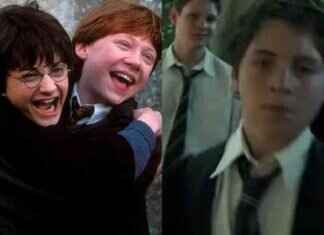Emotions can be deadly bait online. Germany’s longest-serving “crime scene” detective Lena Odenthal (Ulrike Folkerts) has to realize this in the new Ludwigshafen crime thriller. What are the limits of virtual reality? This question is highly topical in a society that is becoming more digital. “Avatar” is the name of the “crime scene” that Das Erste broadcasts on Sunday at 8:15 p.m. In it, Odenthal finds himself in an unpleasant new world – it is also about the use of social media, which divides adults and young people.
The long-running TV hit begins with a dancing woman with a champagne flute, filming herself. An influencer? The glass tilts, the image tilts, the first seconds of the film set the tone. It is the start of a demanding plot maze (book: Harald Göckeritz). This 79th Odenthal “crime scene” unrolls many narrative threads and explores its themes with strong images (camera: Conny Janssen) and driving music (Dominic Roth). It’s worth sticking with it.
An unknown man is found dead on the Rhine, he died of a heart attack. He wasn’t alone at the time of his death, someone pepper sprayed him in the face. The investigators Odenthal and Johanna Stern (Lisa Bitter) come across a mysterious witness: Julia da Borg (Bernadette Heerwagen). Everything indicates that she saw the man. But – there is no evidence and the woman denies it. Shortly afterwards another dead man lies on the Rhine.
An avatar is an artificial image of a real person. What do you do when the crime takes place in the real world – but the traces lie deep on the Internet? Director Miguel Alexandre explores the topic of digital manipulation in many facets. Young people appear strong and yet are fragile. Adults are left overwhelmed. Stable conditions are an illusion in “Avatar”.
Step by step, the commissioners get closer to the dirty reason for revenge and violence. The abyss behind the death of Julia’s foster daughter Sina (Ziva Marie Faske) becomes increasingly clear. The internet can be unforgiving when people trust it too much.
The “chat world” has long since become an integral part of our everyday lives, says author Göckeritz. “Voices can be manipulated so that they apply to another person, artificial intelligence can generate answers in seconds so that it appears as if the person being asked reacted spontaneously and directly, as if they were a real person. You can do all of this playing in crime novels, all of this creates new narrative possibilities.”
Why a woman drills holes in a laptop and finally throws it into the Rhine, and why a high-ranking bank employee lives in a cheap hotel, remains exciting until the end. The stylishly told film keeps curiosity going for long stretches.
By the way, “Avatar” also marks the end of two long-time helpers: the Ludwigshafen team will continue to work without actress Annalena Schmidt and actor Peter Espeloer. The film characters Edith Keller and Peter Becker, who have been there since 1998, say goodbye to the Sunday crime thriller in a largely unpathetic manner. “Now it’s going to the sidelines,” says Espeloer in the film, biting into a roll. “But we could reappear as avatars.”











